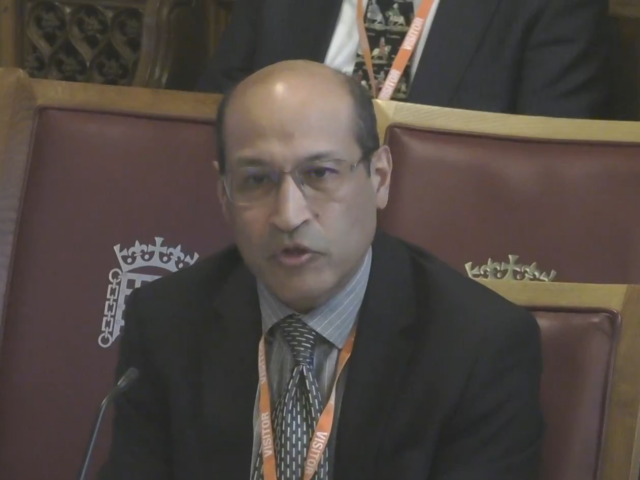Raj Patel, Understanding Society’s Associate Director, Policy and Partnerships, has given evidence to the House of Lords Home-based Working Committee’s inquiry into remote and hybrid working in the UK. The Home-based Working Committee was appointed to consider the effects and future development of home-based working in the UK. The Committee issued a call for evidence in March this year and is due to report on its findings later this year.
The UK is a global leader in hybrid working. This partly reflects the nature of leading industries in the UK, such as financial services, business services and IT. The committee, appointed in January 2025, is investigating “the challenges and opportunities of remote and hybrid working for workers and employers, the impact of remote and hybrid working on productivity, and any wider consequences of remote and hybrid working for the UK economy and society”.
Our evidence focused on:
- data sources and gaps: the sources of data that exist on remote and hybrid working, including Understanding Society, and any gaps that exist, such as the coverage of demographic groups or the number of days people work at home per week
- wider effects: whether the data address effects of remote and hybrid working including the impact on house prices, office rents, crime, transport, or the environment
- productivity: how can productivity be measured so the impact of remote and hybrid working is understood? What other data relating to employer interests is collected, such as take-up of home-working policies?
Raj highlighted the data Understanding Society, the UK Household Longitudinal Study led by a team of scientific experts at ISER, collects on the availability and use of various form of flexible working, including working from home (WFH). These WFH data can broken down by demographics, regions and type of industry a person is working in. He emphasized how the data can be used to examine interactions with other domains of life such as health and wellbeing, gender equality, caring, transport and commuting behaviour, and housing and energy use.
The other witnesses at the session were Grant Fitzner, Director of Macroeconomic and Environmental Statistics and Analysis at Office for National Statistics, and Lorna Landells, Director at Remit Consulting. All three discussed the fact that findings may show correlations rather than causation, and that several sources of evidence are needed.
Find out more about the work of the Committee
Discover Understanding Society’s data on employment
Read Understanding Society and ISER blogs on remote working, working from home and gender roles, working from home and housework, and productivity during COVID-19
